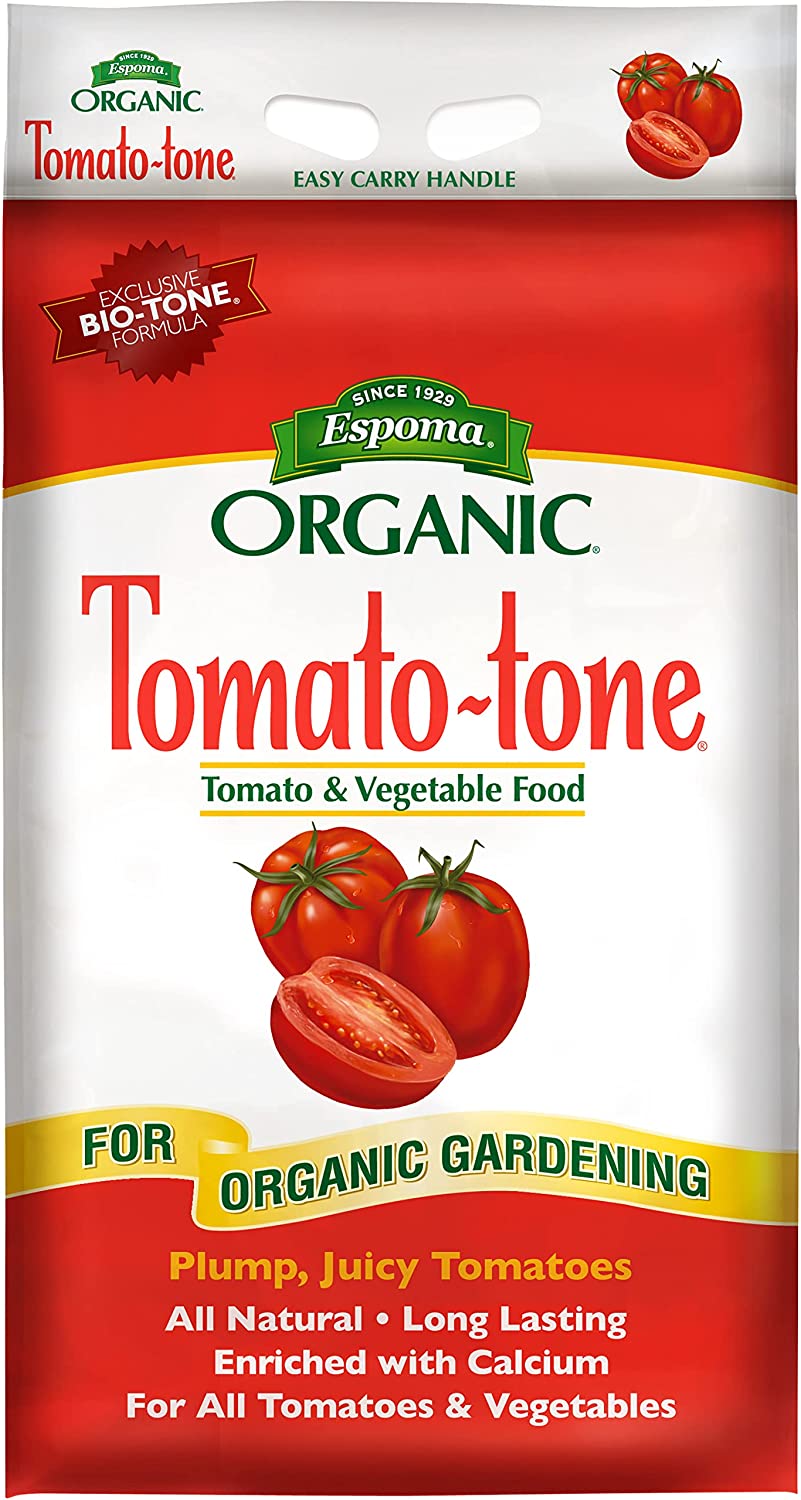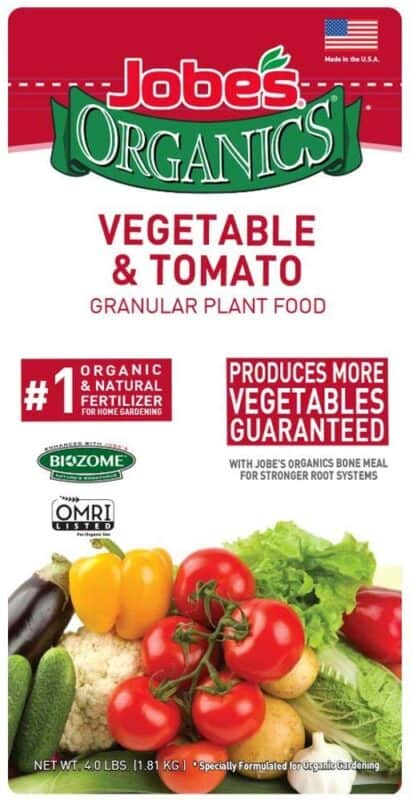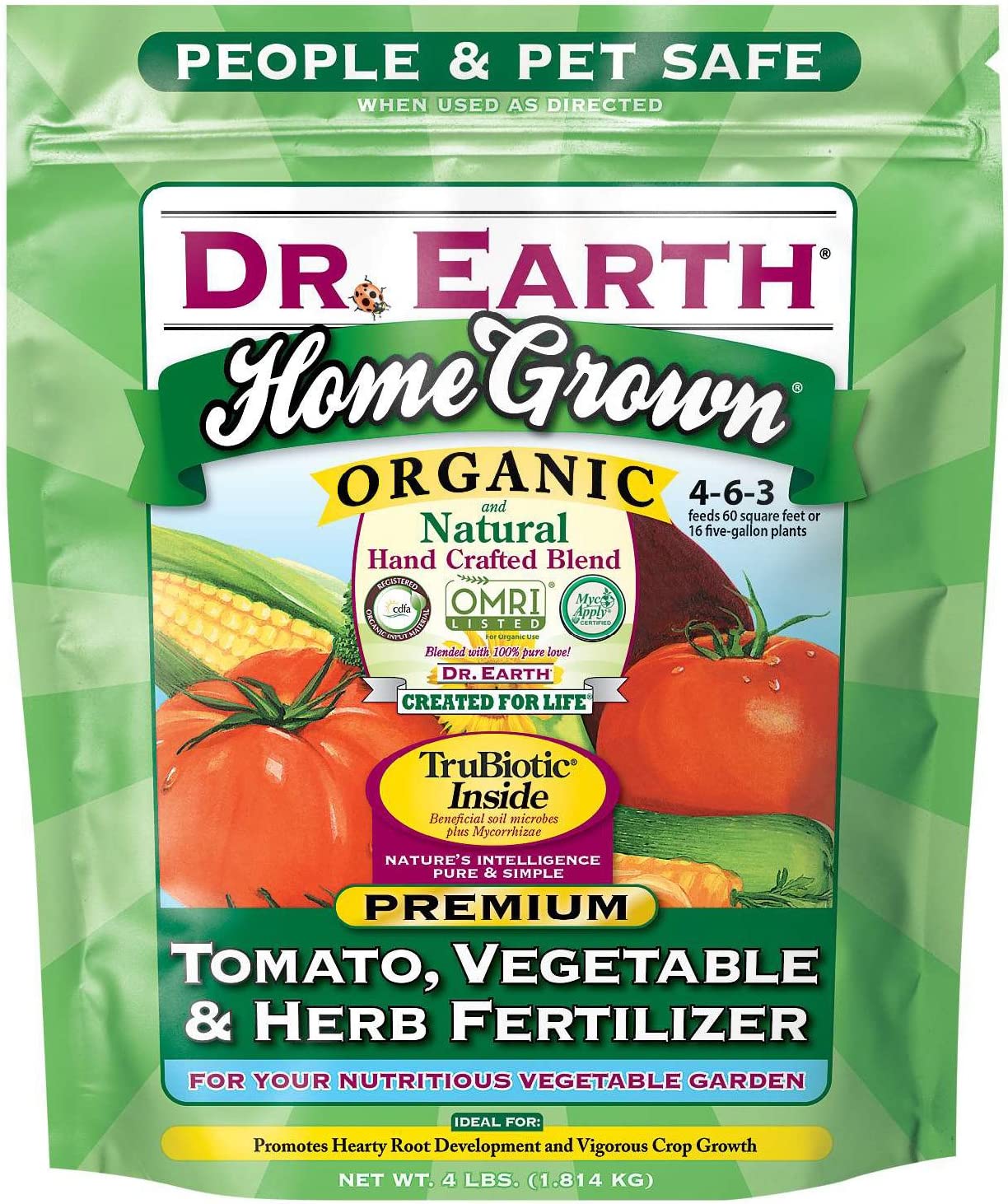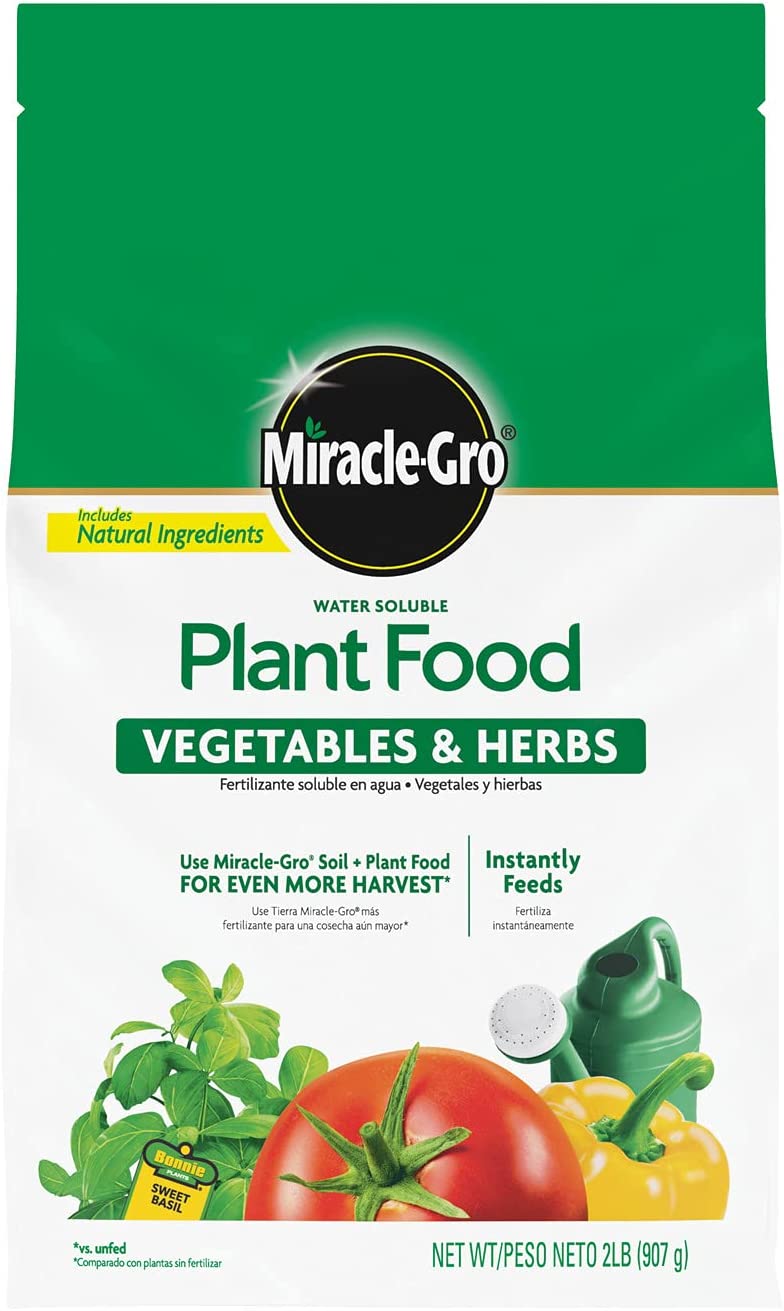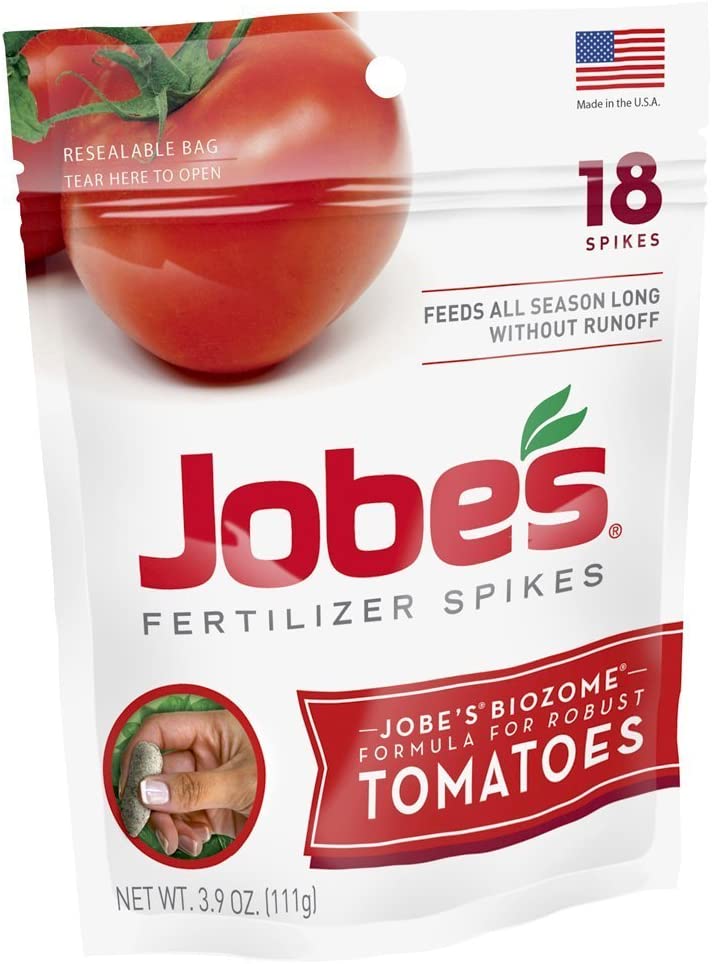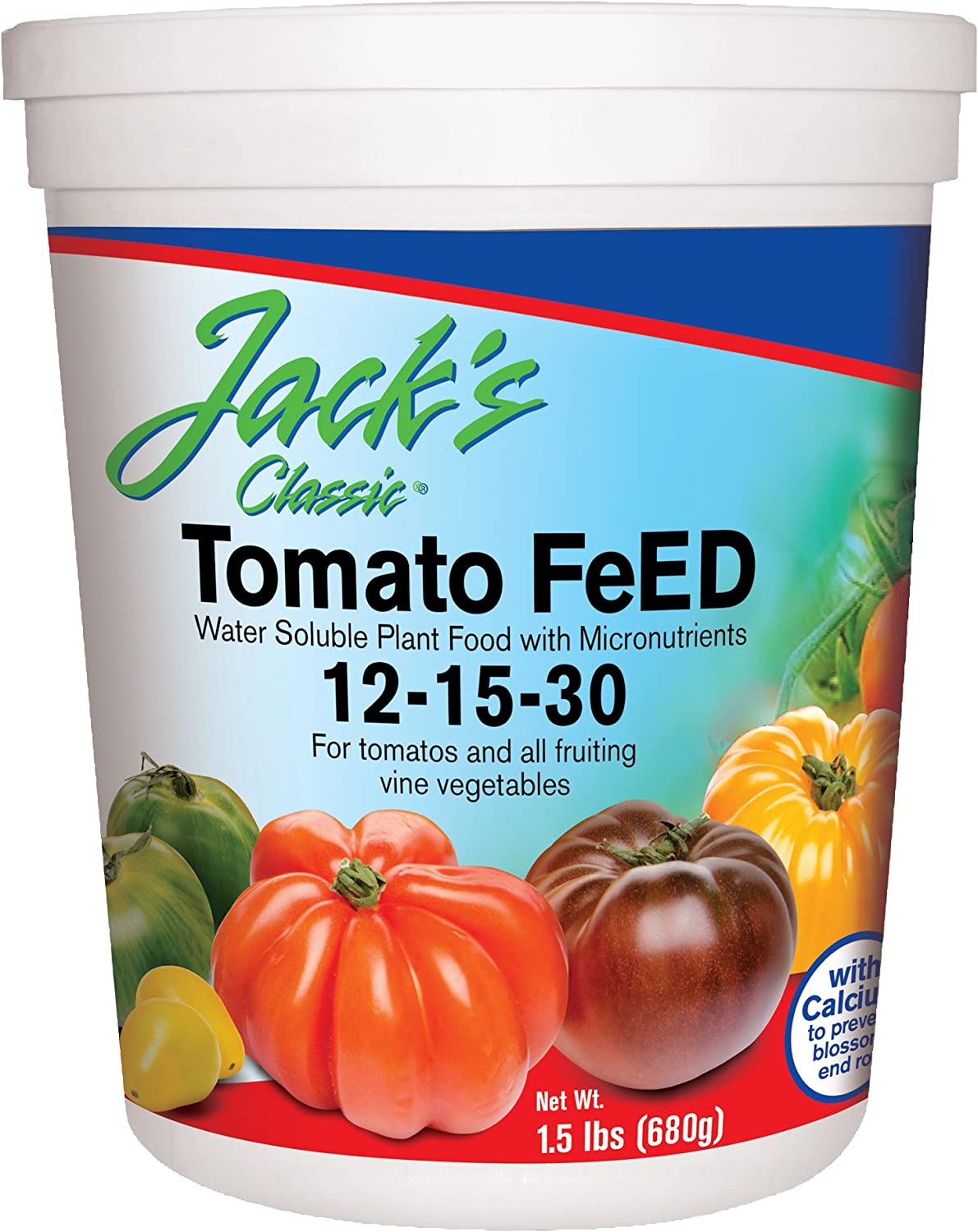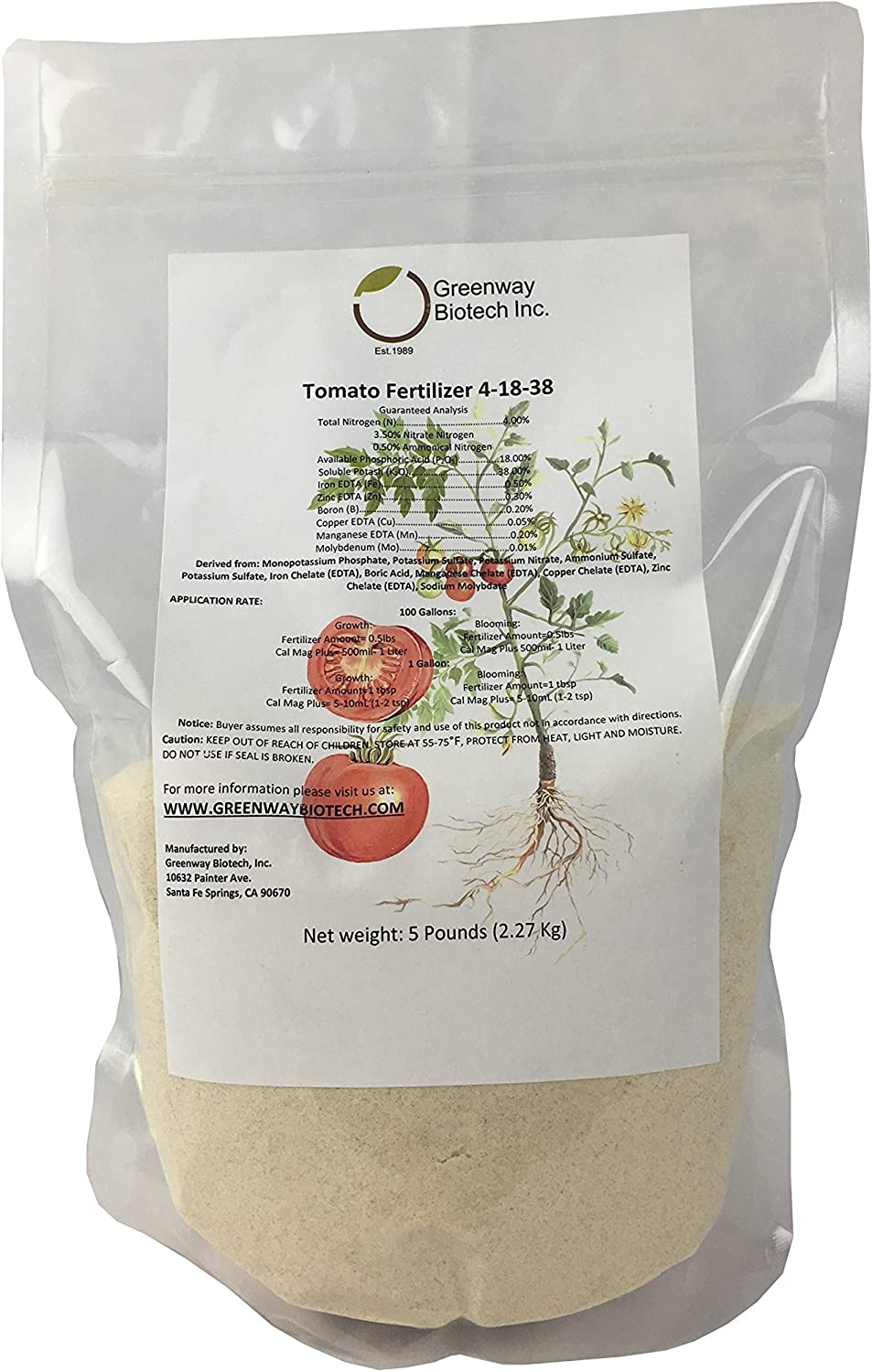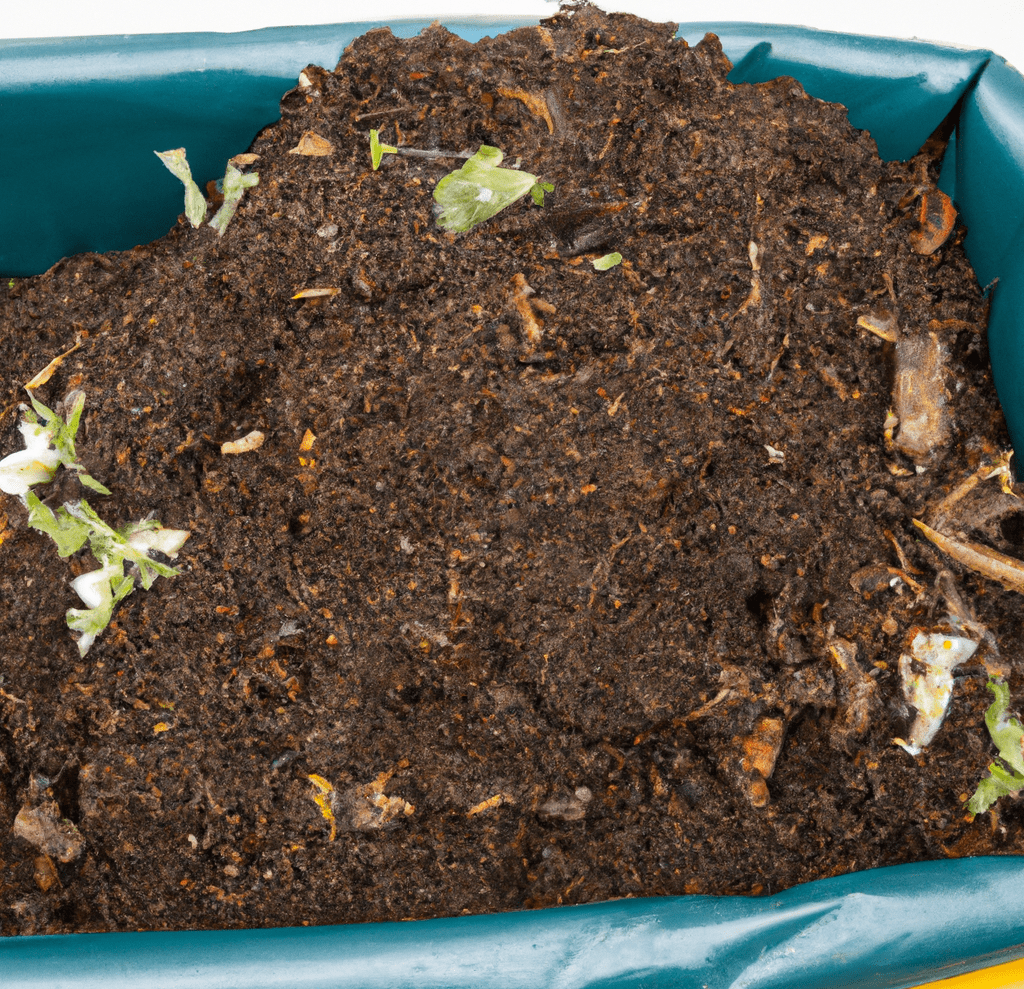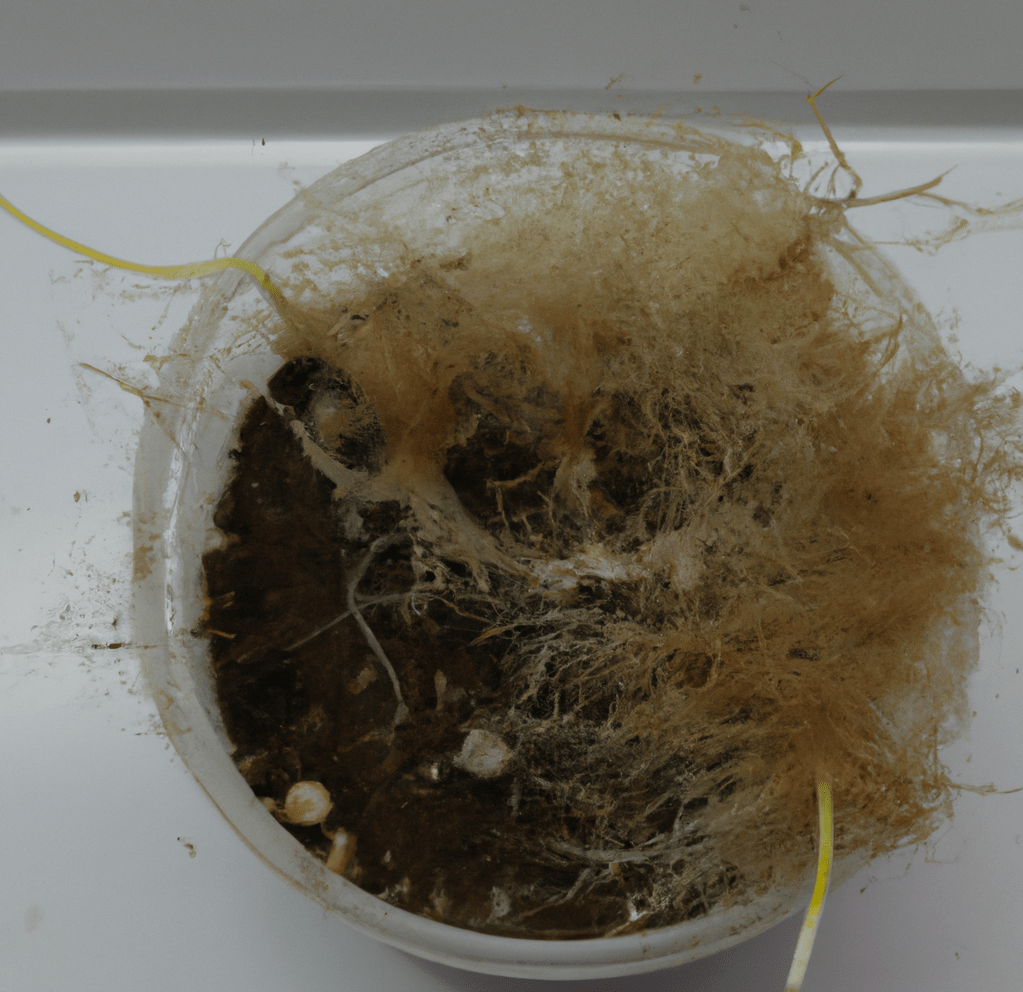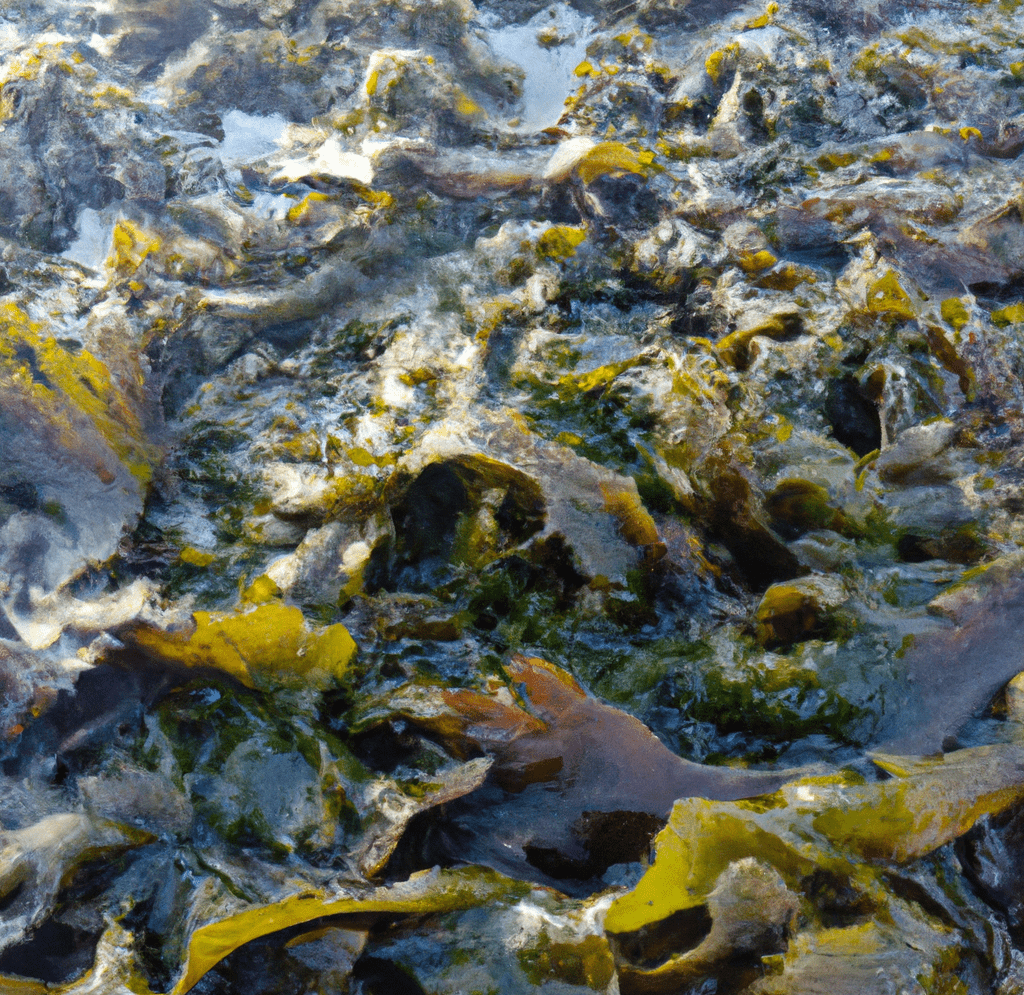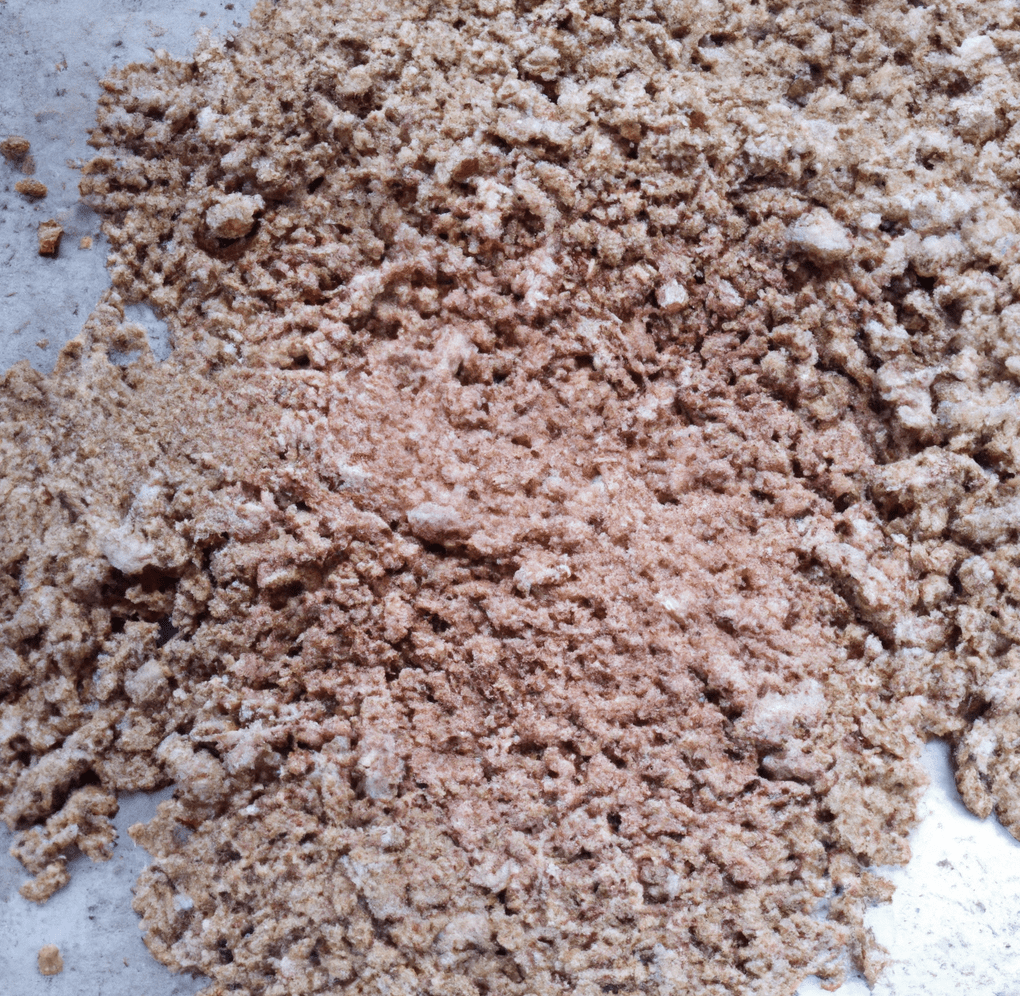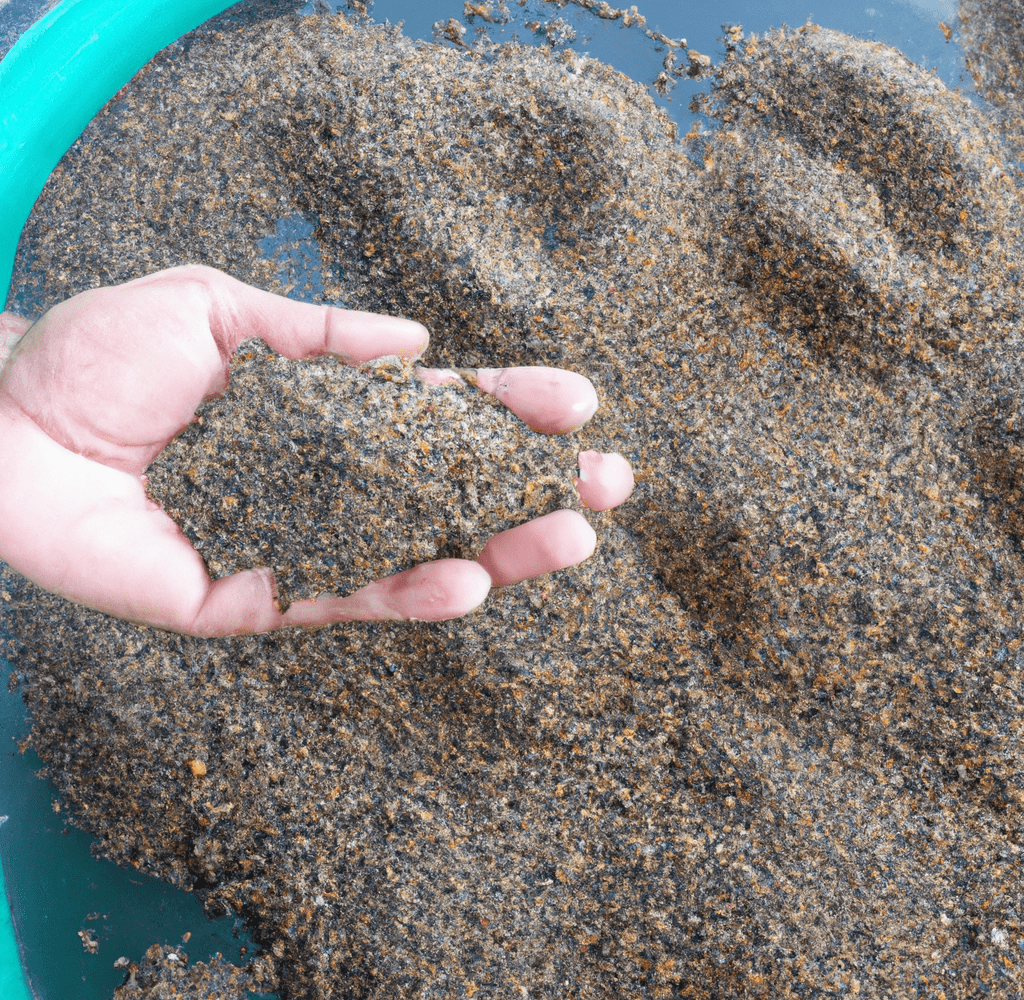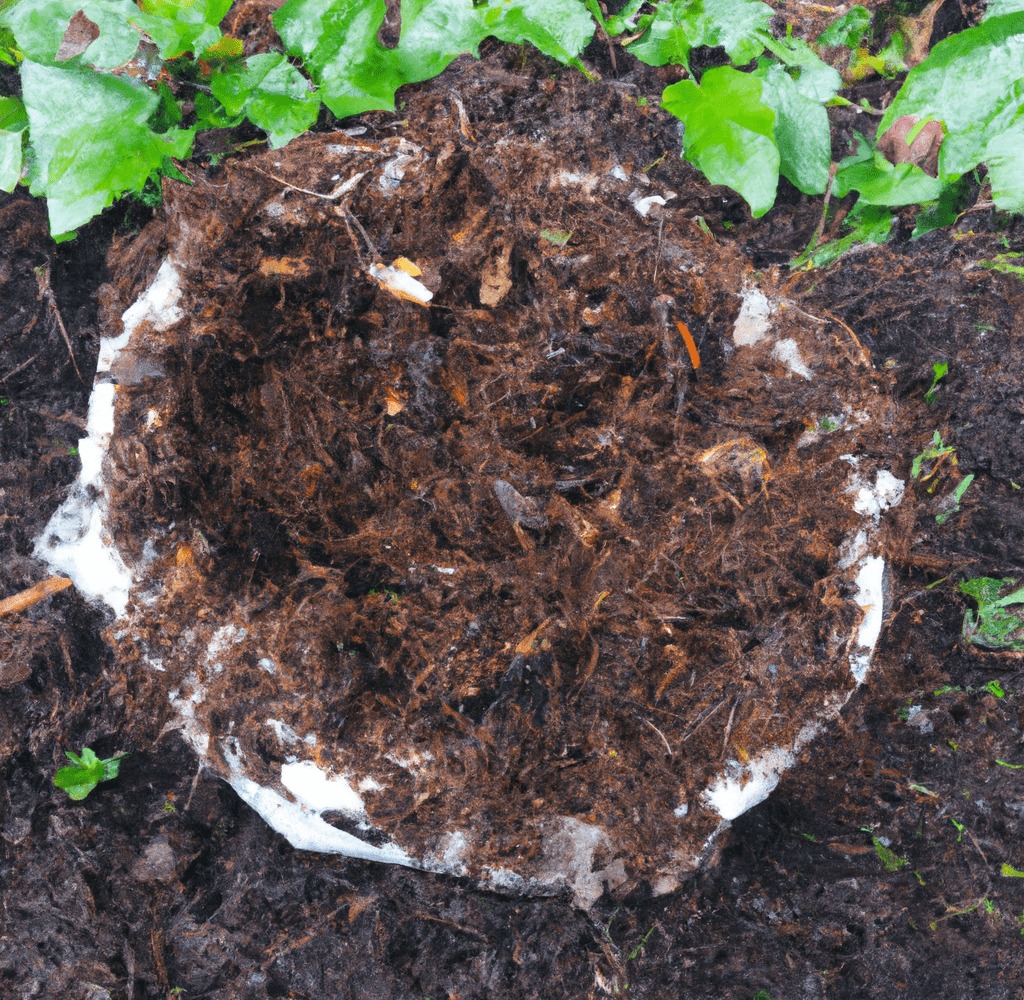Home » Fertilizers » Best Tomato Fertilizer
Most gardeners begin their journey by planting and growing tomatoes. Not only is it easy to grow tomato plants, but it is also extremely fun and rewarding. You can grow any type of tomato plant including cherry varieties or the larger types.
And by following our handy gardening guides, this process is made easier with the best tomato fertilizer that helps boost growth and retain a bright and vivid color.
If you are interested to learn more about the best tomato fertilizer and growing your own delicious vegetables and fruits, then be sure to also check out our guide on how to grow peppers, and plant strawberries as well. Nothing beats nurturing your very own fruit and veggie garden. But to make the most out of it, investing in an effective fertilizer is a must!
To enjoy your delicious homegrown tomatoes, it is crucial to feed them a nutrient-rich fertilizer that will protect them against diseases and ensure a healthy, plump growth.
Here at Your House Your Garden, we bring to you this article where we discuss the best fertilizers for tomato plants that will enhance your garden soil by releasing beneficial soil microbes so you can enjoy juicy tomatoes from your own garden. Keep on reading!
Top pick for best tomato fertilizer
- 1. Best Choice - Espoma Tomato-tone Organic Fertilizer
- 2. Best Budget - Miracle-Gro Water Soluble Plant Food
- 3. Best Overall - Jobe’s Organics 9026 Fertilizer
Jump to Section
1. Espoma Tomato-tone Organic Fertilizer
Known for its superior quality of fertilizers, Epsoma never fails to impress. Their incredible organic tomato fertilizer is the perfect pick for organic gardening. It consists of an excellent balance of macro and micro-nutrients with a unique Biotone formula that helps your tomatoes grow juicy and plump.
It works for all types of tomatoes, be it hybrid or heirloom and it also prevents unwanted foliage growth. You can also use this fertilizer for other vegetables as well.
Its 3-4-6 NPK ratio with 8% calcium prevents blossom end rot and it is free of toxic elements. The tomato-tone is eco-friendly which means that there are no sludges or other toxins released in the water or air around you.
You can use this Espoma to fertilize tomatoes every 2 weeks during the growing season. It is ready to use and does not require any mixing.
2. Jobe’s Organics 9026 Fertilizer
Looking for one of the best organic tomato fertilizer for your tomato plant? Jobe’s organic fertilizer is the best pick for gardeners. It is certified organic and is known to produce deliciously red and plump tomato plants.
This granular fertilizer is water soluble. It consists of a macronutrient 2-5-3 NPK ratio, including Biozome that blends good bacteria, archaea, and mycorrhizal fungi. It is also a quick release, power packed tomato fertilizer that injects only the best and most useful nutrients in your soil, improving its health as well as protecting your tomato plants from diseases, insect infestation, and even drought.
It is a certified tomato fertilizer by the USDA and OMRI. Additionally, this organic fertilizer does not contain toxins or harmful synthetic chemicals which makes it safe to use around kids and also your pets.
This tomato fertilizer is affordable, quick-action, and comes in a safe and easy-to-use bag. However, it may not always be the best option for potted tomato plants, and it can be a bit pricey.
3. Dr. Earth Home Grown Fertilizer
This Dr. Earth tomato fertilizer is packed with premium quality human and feed-grade ingredients. It is a superb blend of proteins, carbs, humic acid, and multi-minerals that keep your tomato plants as well as other vegetable plants fully fed and it also enhances the quality of your soil, helping in the production of juicy tomatoes and flavorful vegetables.
This is a granular fertilizer that is long lasting and can be easily sprinkled to fertilize tomatoes. Though it may be pricey, it comes with high quality nutrients that help your tomato plants grow and resist any disease or insect attack.
It is produced sustainably in the USA and it is also on the list of non-GMO tomato fertilizers as well as the OMRI.
However, keep in mind that unlike other tomato fertilizers, this one can leave behind a strong, pungent odor.
4. Miracle-Gro Water Soluble Plant Food
This fertilizer for tomatoes is undoubtedly a miracle worker. It is especially formulated to inject your tomato plant and other vegetables with necessary nutrients. With a balanced NPK ratio of 18-18-20, this tomato fertilizer is excellent to strengthen tomato plant roots and enhance plant growth in the long run.
You can easily fertilize tomato plants with it thanks to its 5% magnesium, 0.05% manganese, 0.10% iron, and 0.05% zinc. This provides a healthy dose of minerals and vitamins needed as plant food and is usually found in premium organic fertilizers.
More importantly, its plant-safe formula protects your plants from burning so long as you use it correctly. You can also save time when fertilizing tomatoes by mixing it in the watering can or a sprayer.
It is affordable, helps your tomato plant grow bigger and healthier, and unlike any slow release fertilizer, this plant food shows fast results. However, it only contains a small percentage of micronutrients and it is also unsuitable for acidic plants or plants with calcium deficiency.
5. Jobe’s Tomato Fertilizer Spikes
One of the most revolutionary and best fertilizer for tomatoes is indeed Jobe’s Tomato Fertilizer Spikes. Gone are the days when you had to spend time mixing, measuring, spraying, or spreading your organic tomato fertilizers, be it granules or liquid fertilizer. With this, all you need to do is push one of the spikes in the soil and watch your tomato plants grow strong and healthy for up to 8 weeks.
Each spike injects nutrients and plant food into the soil for healthy and effective fruit production. This is especially handy for tomatoes planted on raised beds, containers, and in-ground gardens. Once you insert a spike, the slow release formula seeps into the soil and reaches the roots.
The greatest advantage of this is that the nutrients do not wash away with wind or rain as in case of other surface fertilizers. The spikes are pre-measured and hassle-free to use.
6. JR Peter’s 51324 Jack’s Classic Tomato Feed
For those looking for a professional-grade tomato fertilizer, this JR Peter’s plant food is the perfect investment. It comes packed with only the highest quality nutrients. It is also quick in action and water-soluble and can be as easy to use as a liquid fertilizer.
With an NPK ratio of 12-15-30, as well as top macro and micro-nutrients like calcium, magnesium, etc., it ensures that your tomatoes are growing in optimal conditions. It also helps combat diseases such as blossom end rot.
The high levels of potassium in this tomato fertilizer promotes healthy and vigorous growth, as well as strong roots and stems. In fact, this fertilizer is also an excellent choice for a variety of other vegetables.
However, despite all its advantages and features, this tomato fertilizer does not come with any organic certification, thus it is not organic fertilizer.
7. Greenway Biotech Tomato Fertilizer
If you are on the hunt for a fertilizer specifically for growing tomatoes, then this Greenway Biotech Tomato Fertilizer is the best pick. It comes with premium ingredients and in a simple packaging that is easy to store and offers proper fertilizing instructions.
This the ideal choice for gardeners who prefer a water soluble formula and who plant and grow tomatoes hydroponically. It is also just as potent as any liquid fertilizer.
One of the greatest advantages of this tomato fertilizer is that it does not contain heavy, toxic, or harmful metals. It does include excellent micro-nutrients such as iron, copper, zinc, manganese, boron, and molybdenum. However, you may need to mix in calcium nitrate and epsom salt for optimal results.
Different Stages for Growing Your Own Tomato Plants
Depending on the type and variety of tomatoes you are growing, you may be surprised to hear that this delicious fruit can have over 10 different growth stages.
For home gardeners however, there are only 3 main stages of tomato growing that relate to proper fertilization. Fertilizing your tomato plants and using the best tomato fertilizer is paramount in healthy growth, a successful harvest, and also in helping to avoid diseases and other common issues.
1. The Leafing Stage
Growth of the roots and foliage starts at the time of seed germination. For new leaves and stems to effectively produce chlorophyll and engage in photosynthesis, nitrogen is essential at this stage.
2. The Flowering Stage
You will now begin to note healthy blossom formation thanks to the levels of necessary phosphorus. This helps protect the delicate layers of the tomato fruit and supports strong cell walls as well as stems.
3. The Fruiting Stage
Finally, as your tomatoes begin to form, they need a healthy dose of potassium to help prevent any of the blooms from withering away.
Fertilizing Tomato Plants Indoors And Outdoor
Smaller tomatoes that thrive in a single, manageable-sized pot make the finest tomato varieties to grow indoors. These vining varieties of tomatoes include cherry, and grape tomatoes. Tomatoes grown indoors often absorb nutrients more quickly than those grown outdoors due to their constrained growing space. For these tomatoes, slow-releasing fertilizers work best since they provide a steady stream of nutrients.
Factors to Consider When Buying the Best Tomato Fertilizer
Every garden is different. There is no one fertilizer that works best in all situations due to variations in soil health, natural quality, circulation, pH, and other elements. It is always better to have a variety of fertilizer alternatives available to meet the needs of plants at various developmental stages. When searching for the best tomato fertilizer, keep these things in mind.
Soil Health and Condition for Planting Tomatoes
Testing the soil is the best technique to determine whether a garden is capable of producing tomatoes. An investigation of your soil’s soil reveals the current concentrations of all significant nutrients and micronutrients. The findings will provide suggestions for soil additives to use in order to raise the soil’s pH level to the ideal range for growing.
Growth Stages of the Tomato Plant
Tomato plants require nutrients to sustain root development early in life when they establish themselves and expand quickly before flowering. All of the essential key nutrients required for the growing season can be provided by slow-release fertilizer for tomatoes applied during planting season.
Tomato plants require somewhat varied resources for fruit development, flower production, and disease resistance during and after flowering. Mature tomato plants benefit from decreased nitrogen and increased amounts of phosphorus, potassium, and several micronutrients during the fruiting phase. Calcium is particularly crucial for encouraging fruit set and avoiding blossom end rot.
Best Organic Fertilizer for Tomato Plants
The components used to make organic tomato fertilizer are all certified organic. These formulations offer higher quantities of micronutrients than inorganic products while having lower concentrations of nitrogen (N), phosphorus (P), and potassium (K). In the event of a spill or other catastrophe, organic fertilizers are far less likely to harm plants or contribute to water contamination.
Microorganisms in the soil, such as fungi and bacteria, help the majority of organic fertilizers reach plants. Following the bacteria’ consumption of the fertilizer’s constituent parts, nutritional molecules that plants can use are released. Compared to inorganic fertilizers, organic fertilizers support a wider range of soil ecology.
Different Types of Best Tomato Fertilizers to Grow Your Own Tomato Garden
Granular, liquid, and water-soluble fertilizers are the three major types available for tomatoes. Both chemical and organic fertilizer options are available on each form. Which composition will best meet the needs of the gardener depends on the season, plant health, weather, ease of use, etc.
Granular Tomato Fertilizers
A granular tomato fertilizer is simple to use, requires no prior preparation, and keeps for a very long time when kept in a cool, dry environment. Granular fertilizer is applied either by sprinkling it across the surrounding soil of mature tomato plants or by mixing it into the soil prior to planting. There are slow-release and quick-release types for granular fertilizers.
For as long as a whole growth season, slow-release fertilizer gradually breaks down for a long, continuous feed for your tomato plants. Slow-release formulations are available to gardeners as both organic and inorganic goods. Inorganic components used in quick-release fertilizers circulate through the soil as they are dissolved by water. This gives your tomato plants a rapid nutrient boost.
Liquid Fertilizers for Tomato Plants
The concentrated type of liquid fertilizer needs to be dissolved with water before use. It is readily available to plants and can be purchased in both organic and inorganic forms. Many growers spray mild liquid tomato fertilizer solutions directly to the tomato plant foliage in addition to the standard application method of soaking soil surrounding plants in liquid fertilizer.
Liquid fertilizer can be applied in a variety of ways, from a straightforward watering can to precise hose-end sprayers that blend the concentration with the water flow as it is dispensed. A fast burst of nutrients is offered by liquid fertilizer, which needs to be sprayed repeatedly. If properly stored and kept unopened, it has a long shelf life.
Water-Soluble Tomato Fertilizer
Granular tomato fertilizer’s ease of storage and liquid tomato fertilizer’s ability to respond quickly are combined in water-soluble fertilizer. Following application, it is immediately accessible to plants. Water-soluble tomato fertilizers are available in both organic and inorganic varieties, just like the other kinds.
The best water soluble tomato fertilizers can be easily dissolved in water thanks to its granular, powdery texture. It is applied to the tomato plants in the same way as liquid fertilizers.
FAQs About Best Fertilizers for Tomato Plants in Your Garden
When should you fertilize your tomato plants?
You should fertilize your tomato plants as seedlings as they are in the process of growing inside. Additionally, you should also fertilize the plant when transplanting the seedling outside. Once the tomato flower has sprouted, you can fertile again while the fruit develops and is ready for harvest.
How much fertilizer do tomato plants need?
Tomato plants need different levels of fertilizer depending on their type and variety. Application of the fertilizer for tomatoes also varies depending on the timing and the growing season. We recommend always reading package instructions.
Is there a difference between the best tomato fertilizer and ordinary fertilizer for the lawn?
Yes, there is a difference between the best tomato fertilizer and ordinary fertilizer for the lawn. The best tomato fertilizers contain high levels of potassium compared to ordinary lawn fertilizers, which usually have a balanced NPK ratio.
Can too much tomato fertilizer destroy your tomato plant?
Yes, too much tomato fertilizer can destroy your tomato plant. This is due to the excessive amounts of nitrogen that may cause the tomato plant to produce greater foliage instead of fruit.

Abigail Clemente
To say that Abigail is passionate about gardening and landscaping would be an understatement. Abigail came to Your House Your Garden team with an already exceptional portfolio as an experienced writer.

Abigail Clemente
To say that Abigail is passionate about gardening and landscaping would be an understatement. Abigail came to Your House Your Garden team with an already exceptional portfolio as an experienced writer.

